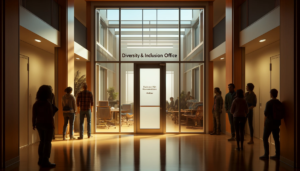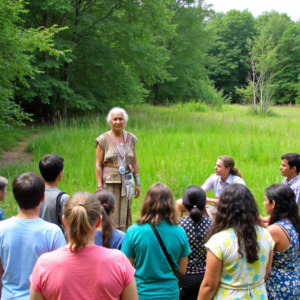In a recent episode of the EDUCAUSE Shop Talk podcast, titled 2025 EDUCAUSE Top 10: Restoring Trust, leaders in higher education explored the pressing challenge of rebuilding trust within academia. The discussion resonated deeply, as it touched on the very issues threatening the foundation of higher education.
Trust in higher education is fraying. What was once a widely respected institution is now increasingly viewed with skepticism. As we face mounting challenges, two critical factors stand out: the declining trust in higher education’s relevance and its politicization. Addressing these issues isn’t just about restoring faith in academia—it’s about ensuring its future.
The Relevance Crisis: Is Higher Education Delivering?
Higher education has traditionally been a trusted path to success. But today, students and families are questioning its value.
- Debt Without Reward: Many graduates leave college with significant debt but struggle to secure jobs that justify their investment. Even more troubling, countless students accrue debt without earning a degree, stalling their lives and limiting opportunities.
- Misaligned Curricula: Employers increasingly question whether universities prepare students with the skills they need for the workforce. Technological advancements often outpace academic programs, leaving graduates ill-equipped to meet industry demands.
To remain relevant, higher education must adapt. Universities should forge stronger industry partnerships, embed practical skills into curricula, and offer flexible pathways that cater to diverse learners.
The Politicization of Higher Education: A Dangerous Divide
Higher education should be a place where ideas flourish and perspectives are challenged. Yet today, campuses are often caught in the crossfire of cultural and political battles, undermining their core mission to foster wisdom through open dialogue.
- The Problem with Safe Spaces: Some argue that campuses should shield students from offensive or controversial ideas. While emotional well-being is important, higher education is not meant to be a bubble where feelings take precedence over intellectual growth. Universities must prioritize the free exchange of ideas, even when those ideas provoke discomfort.
- Restoring True Free Speech: The essence of higher education lies in its ability to create spaces where all voices can be heard, not just the dominant or politically convenient ones. This means ensuring that controversial speakers, dissenting faculty, and marginalized voices alike have equal opportunity to contribute to the academic conversation.
Rebuilding Trust: A Path Forward
The road ahead is challenging, but not impossible. Here are a few steps institutions can take to rebuild trust:
- Deliver Clear Value: Demonstrate the tangible benefits of a degree by aligning education with employability. This includes integrating apprenticeships, co-ops, and skill-building programs into academic offerings.
- Address Affordability: Tackling the student debt crisis is key. Offering more affordable degree options, loan forgiveness programs, and transparent pricing models can help restore faith in the system.
- Cultivate Open Dialogue: Higher education must prioritize intellectual diversity, encouraging debate and fostering a culture where students can grapple with challenging ideas without fear.
- Embrace Accountability: Transparency is crucial. Universities must acknowledge their shortcomings and communicate their plans to address them, showing a commitment to continuous improvement.
A Hopeful Future for Higher Education
The challenges outlined in the EDUCAUSE episode are substantial, but so are the opportunities. Higher education can once again be a trusted cornerstone of society by embracing relevance, inclusivity, and transparency.
The question isn’t whether higher education is worth saving—it’s whether we are ready to adapt and innovate to meet society’s evolving needs.
What do you think? How can higher education rebuild trust in an era of skepticism and division? I’d love to hear your thoughts in the comments.





